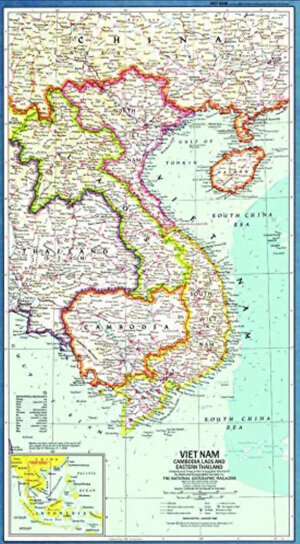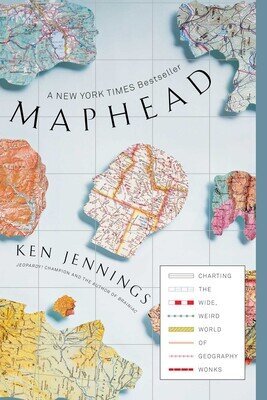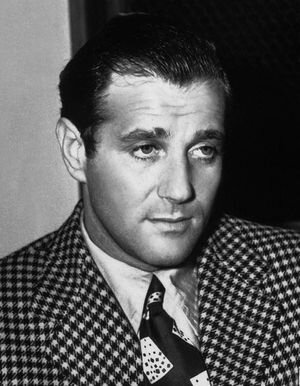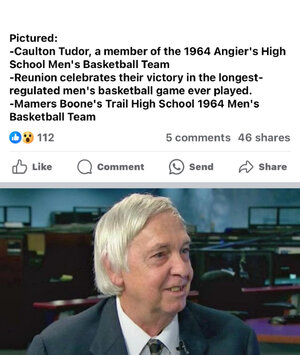There was a play written about this. I live in Alamance County and saw it performed at the Paramount Theater in Burlington. While I’m not a theater critic, I would have to say it was a very touching play that brought home to the audience a feeling of what it was like to be a black person in NC just after the War. I don’t remember the play’s name.IN GRAHAM

Lynching of Wyatt Outlaw and the Kirk-Holden War
On February 26, 1870, Graham town commissioner Wyatt Outlaw, an African American, was lynched by a band of Ku Klux Klansmen.Outlaw served in the 2nd Regiment United States Colored Cavalry during the Civil War. In 1866, he attended the second freedmen’s convention in Raleigh and soon after...www.dncr.nc.gov
Navigation
Install the app
How to install the app on iOS
Follow along with the video below to see how to install our site as a web app on your home screen.
Note: This feature may not be available in some browsers.
More options
You are using an out of date browser. It may not display this or other websites correctly.
You should upgrade or use an alternative browser.
You should upgrade or use an alternative browser.
This Date in History | Six Regulators Hanged
- Thread starter donbosco
- Start date
- Replies: 766
- Views: 15K
- Off-Topic
- Messages
- 1,102
My favprite place of isolation during my backpacling years.
On one trip I wasi sitting about where this picture was taken near Horn creek. That spot called to me from below and when I got there there was a nicely shaped 'seat' to sit on. Taking off my shoes (converse high tops - no need for heavy boots in the canyon) I noticed something circular and plasitc buried with about 1/4" above ground. Digging it out it was a vial with 5 joints in it. Damn! And it was golden; and sweet, and after a couple hits I was buzzed. Not your Hopi or Havasu blend lol.
Just a beautiful day. Then I heard the sound of a helicopter approaching. Landed on the sandbar below me. Ranger folk got out as I hustled down shoes untied. They were taking water samples and were very apoligetic for interupting my peaceful existence. Buzz killed a bit. Oh, well. PS I still have that vial 45 years later.
1919 The U.S. Congress established Grand Canyon National Park in northwestern Arizona.


 www.nps.gov
www.nps.gov

On one trip I wasi sitting about where this picture was taken near Horn creek. That spot called to me from below and when I got there there was a nicely shaped 'seat' to sit on. Taking off my shoes (converse high tops - no need for heavy boots in the canyon) I noticed something circular and plasitc buried with about 1/4" above ground. Digging it out it was a vial with 5 joints in it. Damn! And it was golden; and sweet, and after a couple hits I was buzzed. Not your Hopi or Havasu blend lol.
Just a beautiful day. Then I heard the sound of a helicopter approaching. Landed on the sandbar below me. Ranger folk got out as I hustled down shoes untied. They were taking water samples and were very apoligetic for interupting my peaceful existence. Buzz killed a bit. Oh, well. PS I still have that vial 45 years later.
1919 The U.S. Congress established Grand Canyon National Park in northwestern Arizona.


Grand Canyon National Park (U.S. National Park Service)
Entirely within the state of Arizona, the park encompasses 278 miles (447 km) of the Colorado River and adjacent uplands. Located on the ancestral homelands of 11 present day Tribal Communities, Grand Canyon is one of the most spectacular examples of erosion anywhere in the world—a mile deep...

Last edited:
donbosco
Inconceivable Member
- Messages
- 3,368
Indulge me friends..,
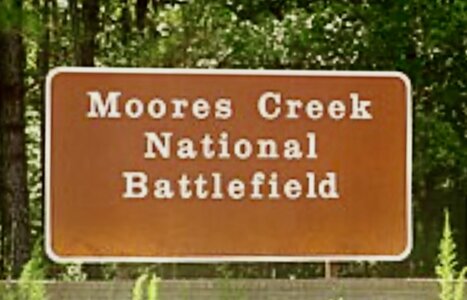
#OTD (Feb. 27) in 1776 North Carolina militia met Scottish Highlanders in battle at Moores Creek Bridge (Pender County). The militia were under the overall command of Colonel James Moore out of Wilmington. Captains Richard Caswell led troops from New Bern (approx. 850) and Alexander Lillington (~150) from Brunswick County. Moore, who was at the head of around 650 troops arrived at Moores Creek after the battle was fought.
The Highlanders , Loyalists, were from Crosscreek (Fayetteville today). All told, those against the Crown that day totaled 1000 and those in favor, the Scots, counted 700. Lillington had arrived to the site a day early and had prepared fortifications which were crucial in the engagement. Allegiance on this day is an intriguing thing, after all, in the moment, Caswell and Lillington and their men were essentially traitors to their country. Of course, as we tell the story, they become Patriots. Such is the language of the winners in retrospect.
The Scottish Highlanders and their constancy to George the Third is also at first a curious thing. Certainly there was no love for a Crown that had so recently (1746) vanquished them at The Battle of Culloden, so why stand and fight as Loyalists? That allegiance can be mainly explained by the fact that as a condition of the receipt of land grants in colonial North Carolina, the otherwise defeated and dispossessed Highlanders had sworn an Oath of Fealty to the English monarch. Thus, no matter their own rebellious inclinations, the Scots were bound by their word.
That’s a shame since they were routed on this day in 1776. Caswell and Lillington’s men set up across the bridge that the Highlanders were obliged to cross. The wily eventual-patriots also removed the cross boards and greased the beams on the bridge, slowing any crossing to a deadly pace. The Scots charged ahead anyway, brandishing broadswords and dirks in the hope of finding in the far side the kind of hand-to-hand combat in which they excelled. Caswell and Lillington’s troops mowed them down. Casualties were likely 50, some drowning in the cold water of deep Moores Creek.
This win set back English plans for subduing The South and then turning full force on The North and was, in the long run, key to outlasting English resources and patience, and bring independence.
This battle is quite personally dear to me. Once upon a time, around 2003, Leah and I had set out heading east - beach bound out of Chapel Hill. We were newly dating and this was our first weekend getaway. I’m a fan if Blue Highways, as I learned to my eternal delight, is Leah. Indeed, we had talked about making that sort of route a general characteristic of this excursion. Secretly, but wary of being nerdy around her, I hoped that history might play some role in our romantic escape from The Triangle. So we took Highway 421 South, the literal lifeline that splits my homeland of #ChathamCounty and is Main Street, such as there can be in a mini-hamlet like #Bonlee.
Somewhere along that way, a few hours into the music and the lovey talk, we saw the sign. I definitely saw it first and immediately began plotting how? Aware of the double down nerdiness of wanting to stop at a revolutionary war battle ground in the absolute middle of nowhere on the way to a romantic weekend trip - our very first even - I squelched myself. So what should happen but Leah, upon spying the brown historic marker, not only says, “Hey look!” but pulls out a folder from her bag with a print out about the place!
I was already a hard lean but at that moment I fell deeply and Happily in Love. There really is no better pairing than Historian and Librarian.

#OTD (Feb. 27) in 1776 North Carolina militia met Scottish Highlanders in battle at Moores Creek Bridge (Pender County). The militia were under the overall command of Colonel James Moore out of Wilmington. Captains Richard Caswell led troops from New Bern (approx. 850) and Alexander Lillington (~150) from Brunswick County. Moore, who was at the head of around 650 troops arrived at Moores Creek after the battle was fought.
The Highlanders , Loyalists, were from Crosscreek (Fayetteville today). All told, those against the Crown that day totaled 1000 and those in favor, the Scots, counted 700. Lillington had arrived to the site a day early and had prepared fortifications which were crucial in the engagement. Allegiance on this day is an intriguing thing, after all, in the moment, Caswell and Lillington and their men were essentially traitors to their country. Of course, as we tell the story, they become Patriots. Such is the language of the winners in retrospect.
The Scottish Highlanders and their constancy to George the Third is also at first a curious thing. Certainly there was no love for a Crown that had so recently (1746) vanquished them at The Battle of Culloden, so why stand and fight as Loyalists? That allegiance can be mainly explained by the fact that as a condition of the receipt of land grants in colonial North Carolina, the otherwise defeated and dispossessed Highlanders had sworn an Oath of Fealty to the English monarch. Thus, no matter their own rebellious inclinations, the Scots were bound by their word.
That’s a shame since they were routed on this day in 1776. Caswell and Lillington’s men set up across the bridge that the Highlanders were obliged to cross. The wily eventual-patriots also removed the cross boards and greased the beams on the bridge, slowing any crossing to a deadly pace. The Scots charged ahead anyway, brandishing broadswords and dirks in the hope of finding in the far side the kind of hand-to-hand combat in which they excelled. Caswell and Lillington’s troops mowed them down. Casualties were likely 50, some drowning in the cold water of deep Moores Creek.
This win set back English plans for subduing The South and then turning full force on The North and was, in the long run, key to outlasting English resources and patience, and bring independence.
This battle is quite personally dear to me. Once upon a time, around 2003, Leah and I had set out heading east - beach bound out of Chapel Hill. We were newly dating and this was our first weekend getaway. I’m a fan if Blue Highways, as I learned to my eternal delight, is Leah. Indeed, we had talked about making that sort of route a general characteristic of this excursion. Secretly, but wary of being nerdy around her, I hoped that history might play some role in our romantic escape from The Triangle. So we took Highway 421 South, the literal lifeline that splits my homeland of #ChathamCounty and is Main Street, such as there can be in a mini-hamlet like #Bonlee.
Somewhere along that way, a few hours into the music and the lovey talk, we saw the sign. I definitely saw it first and immediately began plotting how? Aware of the double down nerdiness of wanting to stop at a revolutionary war battle ground in the absolute middle of nowhere on the way to a romantic weekend trip - our very first even - I squelched myself. So what should happen but Leah, upon spying the brown historic marker, not only says, “Hey look!” but pulls out a folder from her bag with a print out about the place!
I was already a hard lean but at that moment I fell deeply and Happily in Love. There really is no better pairing than Historian and Librarian.
- Messages
- 1,102
Pretty big deal for us up and coming draft age folk. It exemplifies what a true free and independent media can accomplish. Unfortunatelt, we are now seeing a near total collapse of that independence.
In February 1968 CBS Evening News anchor Walter Cronkite undertook a two-week fact-finding trip to Vietnam to assess the impact of the Tet Offensive—the massive coordinated North Vietnamese and Vietcong surprise attack on hundreds of targets across South Vietnam. At 10:00 p.m. on February 27, at the CBS News headquarters in New York City, Cronkite delivered his controversial 30-minute “Report from Vietnam.” Tens of millions of Americans tuned in as “the most trusted man in America” presented facts from the ground in Vietnam, making the case that the situation was more dire than the administration of President Lyndon B. Johnson alleged. Towards the end of his report he delivered his only on-air personal commentary, in what historian David Schmitz has called the “single most important news event” of the Vietnam War. The “only realistic if unsatisfactory conclusion,” as Cronkite saw it, was that the US was not on the verge of victory and should find an “honorable” way out of Vietnam.
In February 1968 CBS Evening News anchor Walter Cronkite undertook a two-week fact-finding trip to Vietnam to assess the impact of the Tet Offensive—the massive coordinated North Vietnamese and Vietcong surprise attack on hundreds of targets across South Vietnam. At 10:00 p.m. on February 27, at the CBS News headquarters in New York City, Cronkite delivered his controversial 30-minute “Report from Vietnam.” Tens of millions of Americans tuned in as “the most trusted man in America” presented facts from the ground in Vietnam, making the case that the situation was more dire than the administration of President Lyndon B. Johnson alleged. Towards the end of his report he delivered his only on-air personal commentary, in what historian David Schmitz has called the “single most important news event” of the Vietnam War. The “only realistic if unsatisfactory conclusion,” as Cronkite saw it, was that the US was not on the verge of victory and should find an “honorable” way out of Vietnam.
donbosco
Inconceivable Member
- Messages
- 3,368
As a 9-10 year old I watched the news religiously with my Deddy. My brother was 19 and his lottery number was 17. There was derp concern in our house.
Ironically, caught up in Combat and Rat Patrol, I was gung-ho and trying to talk my parents into sending me away to Fork Union Military Academy. Thankfully they waved me off.
Watching the Tote Board of killed and casualties every evening I was pretty sure we were bound for victory, so very many more of THEM were killed compared to US.
I grew up some and by the early 1970s the mendacity of Nixon was so crystal clear - eyes open wide.
Ironically, caught up in Combat and Rat Patrol, I was gung-ho and trying to talk my parents into sending me away to Fork Union Military Academy. Thankfully they waved me off.
Watching the Tote Board of killed and casualties every evening I was pretty sure we were bound for victory, so very many more of THEM were killed compared to US.
I grew up some and by the early 1970s the mendacity of Nixon was so crystal clear - eyes open wide.
Last edited:
- Messages
- 1,223
During the Vietnam War, both my older brothers were in the Navy. One of them was in Vietnam--as a weather man assigned to the Marines up on the DMZ--when our church was visited by the choir from some Methodist college in the Southeast. As was the custom, the members of the choir were divided up among the congregation for Sunday dinner. My family was lucky enough to get two very attractive young women.As a 9-10 year old I watched the news religiously with my Deddy. My brother was 19 and his lottery number was 17. There was derp concern in our house.
Ironically, caught up in Combat and Rat Patrol, I was gung-ho and trying to talk my parents into sending me away to Fork Union Military Academy. Thankfully they waved me off.
Watching the Tote Board of killed and casualties every evening I was pretty sure we were bound for victory, so very many more of THEM were killed compared to US.
I grew up some and by the early 1970s the mendacity of Nixon was so crystal clear - eyes open wide.
In the after dinner conversation, the topic of Vietnam arose. My father was very progressive on just about everything but Vietnam. These two young women just couldn't believe their ears. They pointed one son was in Vietnam, another could go at anytime, and--pointing at me--said a third could go if Vietnam lasted long enough. The only argument my Dad had was that as bad as the Vietnam War was, it was better than any other alternative. That argument fell as flat then as it sounds today.
This discussion, in 1968 or 1969, was the turning point for my father, a WW2 Marine combat vet, on Vietnam. By 1972, he was so against Vietnam, he was the county chairman for George McGovern, a cause almost as futile as Vietnam. I really admired my father for having a mind open enough that it could be changed by a strong, polite, and logical argument, even if that argument was voiced by two college girls.
ETA: Had my father not lived long enough to actually see it, I don't think he would have believed that despite the fact that the US lost the Vietnam War, with-in a generation, Vietnamese teenagers would be working in factories making tennis shoes for Americans. It's like the joke on Rowan and Martin's Laugh-In, "If you really want to win the Vietnam War, just send a delegation of Japanese and German bankers to Hanoi and have them explain exactly what happens if you lose a war to the United States."
Last edited:
- Messages
- 1,102
- Messages
- 1,102
He was a map geek as a kid too. Still is.
donbosco
Inconceivable Member
- Messages
- 3,368
#OTD (Feb. 28) in 1861 North Carolinians voted not to talk about secession. In a statewide referendum prompted by the creation of The Confederacy from Deeper South states three weeks earlier the state government called for the will of the people. With 93,995 citizens casting ballots the “Do Not Hold A Convention To Talk About Secession” tally carried the day by 651 votes.
The Southern Democrat John C. Breckinridge had taken North Carolina’s electoral votes in the presidential election three months earlier. Abraham Lincoln had not appeared on the ballot. But of course the Republican had won the presidency - a reality that had set wheels spinning in Southern Slave Societies to thoughts of leaving the Union.
The states most heavily invested in enslavement broke away first - the Alabamas and Mississippis of the world - as well as our immediate neighbor, South Carolina. The Old North State watched and waited. Not until President Lincoln requested troops of the states to address the South Carolinian attack on Fort Sumpter did North Carolina cast its lot to break the Union. To be sure, Virginia and Tennessee had already signaled their intention to secede before NC joined in.
Accounts seem to indicate that when North Carolina finally made this decision there was no remorse. The state would see the most casualties of any in fact while paradoxically it would also be the source of the highest number of deserters. It would appear that the first vote - the February 28, 1861 in which Tar Heels frankly said, “Let’s don’t talk about this,” was the best course to follow.
The Southern Democrat John C. Breckinridge had taken North Carolina’s electoral votes in the presidential election three months earlier. Abraham Lincoln had not appeared on the ballot. But of course the Republican had won the presidency - a reality that had set wheels spinning in Southern Slave Societies to thoughts of leaving the Union.
The states most heavily invested in enslavement broke away first - the Alabamas and Mississippis of the world - as well as our immediate neighbor, South Carolina. The Old North State watched and waited. Not until President Lincoln requested troops of the states to address the South Carolinian attack on Fort Sumpter did North Carolina cast its lot to break the Union. To be sure, Virginia and Tennessee had already signaled their intention to secede before NC joined in.
Accounts seem to indicate that when North Carolina finally made this decision there was no remorse. The state would see the most casualties of any in fact while paradoxically it would also be the source of the highest number of deserters. It would appear that the first vote - the February 28, 1861 in which Tar Heels frankly said, “Let’s don’t talk about this,” was the best course to follow.
- Messages
- 1,102
Aside from Dean's birthday...
For whatever reason I read this book as a teenager. Key person in the creation of Vegas as a gambling Mecca.
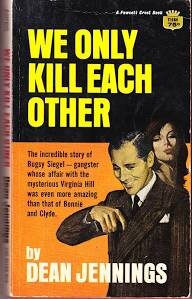
Bugsy Siegel (born February 28, 1906, Brooklyn, New York, U.S.—died June 20, 1947, Beverly Hills, California) was an American gangster who played an instrumental role in the initial development of Las Vegas gambling.
Siegel began his career extorting money from Jewish pushcart peddlers on New York’s Lower East Side. He then teamed up with Meyer Lansky about 1918 and took to car theft and, later, bootlegging and gambling rackets in New York, New Jersey, and Philadelphia. He and Lansky also ran a murder-for-hire operation, the forerunner of Murder, Inc. In 1931 he was one of the four executioners of Joe Masseria.
In 1937 the syndicate leaders sent him to the West Coast to develop rackets there. In California the handsome gangster successfully developed gambling dens, gambling ships (offshore beyond the 12-mile [19-km] limit), narcotics smuggling, blackmail, and other illegal enterprises and equally successfully cultivated the company and friendship of Hollywood stars and celebrities. He developed a nationwide bookmakers’ wire service and in 1945 began realizing his dream of a gambling oasis in the desert northeast of Los Angeles. In that year he built the Flamingo Hotel and Casino in Las Vegas, Nevada, originally budgeted at $1,500,000 but costing eventually $6,000,000, much of it in syndicate funds from the east.
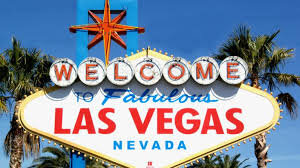
The cost overruns involved extensive skimming by Siegel, who had his girlfriend Virginia Hill deposit the money in European banks; he also began writing bad checks to cover construction costs. Such actions and other duplicities angered Lansky and other eastern bosses. In the late evening of June 20, 1947, Siegel was killed in his palatial Beverly Hills home, brought down by a fusillade of bullets fired through his living-room window. At almost the same moment, three of Lansky’s henchmen walked into the Flamingo Hotel in Las Vegas and declared that they were taking over.
For whatever reason I read this book as a teenager. Key person in the creation of Vegas as a gambling Mecca.

Bugsy Siegel (born February 28, 1906, Brooklyn, New York, U.S.—died June 20, 1947, Beverly Hills, California) was an American gangster who played an instrumental role in the initial development of Las Vegas gambling.
Siegel began his career extorting money from Jewish pushcart peddlers on New York’s Lower East Side. He then teamed up with Meyer Lansky about 1918 and took to car theft and, later, bootlegging and gambling rackets in New York, New Jersey, and Philadelphia. He and Lansky also ran a murder-for-hire operation, the forerunner of Murder, Inc. In 1931 he was one of the four executioners of Joe Masseria.
In 1937 the syndicate leaders sent him to the West Coast to develop rackets there. In California the handsome gangster successfully developed gambling dens, gambling ships (offshore beyond the 12-mile [19-km] limit), narcotics smuggling, blackmail, and other illegal enterprises and equally successfully cultivated the company and friendship of Hollywood stars and celebrities. He developed a nationwide bookmakers’ wire service and in 1945 began realizing his dream of a gambling oasis in the desert northeast of Los Angeles. In that year he built the Flamingo Hotel and Casino in Las Vegas, Nevada, originally budgeted at $1,500,000 but costing eventually $6,000,000, much of it in syndicate funds from the east.

The cost overruns involved extensive skimming by Siegel, who had his girlfriend Virginia Hill deposit the money in European banks; he also began writing bad checks to cover construction costs. Such actions and other duplicities angered Lansky and other eastern bosses. In the late evening of June 20, 1947, Siegel was killed in his palatial Beverly Hills home, brought down by a fusillade of bullets fired through his living-room window. At almost the same moment, three of Lansky’s henchmen walked into the Flamingo Hotel in Las Vegas and declared that they were taking over.
Attachments
Great post. It has been said that Meyer Lansky never killed anyone. He didn’t have to, he had Siegel do it for him.Aside from Dean's birthday...
For whatever reason I read this book as a teenager. Key person in the creation of Vegas as a gambling Mecca.
Bugsy Siegel (born February 28, 1906, Brooklyn, New York, U.S.—died June 20, 1947, Beverly Hills, California) was an American gangster who played an instrumental role in the initial development of Las Vegas gambling.
Siegel began his career extorting money from Jewish pushcart peddlers on New York’s Lower East Side. He then teamed up with Meyer Lansky about 1918 and took to car theft and, later, bootlegging and gambling rackets in New York, New Jersey, and Philadelphia. He and Lansky also ran a murder-for-hire operation, the forerunner of Murder, Inc. In 1931 he was one of the four executioners of Joe Masseria.
In 1937 the syndicate leaders sent him to the West Coast to develop rackets there. In California the handsome gangster successfully developed gambling dens, gambling ships (offshore beyond the 12-mile [19-km] limit), narcotics smuggling, blackmail, and other illegal enterprises and equally successfully cultivated the company and friendship of Hollywood stars and celebrities. He developed a nationwide bookmakers’ wire service and in 1945 began realizing his dream of a gambling oasis in the desert northeast of Los Angeles. In that year he built the Flamingo Hotel and Casino in Las Vegas, Nevada, originally budgeted at $1,500,000 but costing eventually $6,000,000, much of it in syndicate funds from the east.
The cost overruns involved extensive skimming by Siegel, who had his girlfriend Virginia Hill deposit the money in European banks; he also began writing bad checks to cover construction costs. Such actions and other duplicities angered Lansky and other eastern bosses. In the late evening of June 20, 1947, Siegel was killed in his palatial Beverly Hills home, brought down by a fusillade of bullets fired through his living-room window. At almost the same moment, three of Lansky’s henchmen walked into the Flamingo Hotel in Las Vegas and declared that they were taking over.
Last edited:
Meant Lansky.Great post. It has been said that Meyer Landry never killed anyone. He didn’t have to, he had Siegel do it for him.
- Messages
- 1,102
JFK gets too much credit for things LBJ and others actually did. This was one of his better accoplishments (even with it's behind the scenes imperialism at work), And damn, look at what we have become since.
1961 Peace Corps, U.S. government agency of volunteers, established by executive order by Pres. John F. Kennedy on March 1, 1961, and authorized by the U.S. Congress through the Peace Corps Act of September 22, 1961. (From 1971 to 1981 it was a subagency of an independent agency called ACTION.) The first director of the Peace Corps was Kennedy’s brother-in-law R. Sargent Shriver.
The purpose of the Peace Corps is to assist other countries in their development efforts by providing skilled workers in the fields of education, agriculture, health (there has been a particular emphasis on combating HIV/AIDS), trade, technology, environmental protection, women’s economic empowerment, and community development. Peace Corps volunteers are assigned to specific projects on the basis of their skills, education, and experience. Once abroad, the volunteer is expected to function for two years as a good neighbor in the host country, to speak its language, and to live on a level comparable to that of the volunteer’s counterparts there.
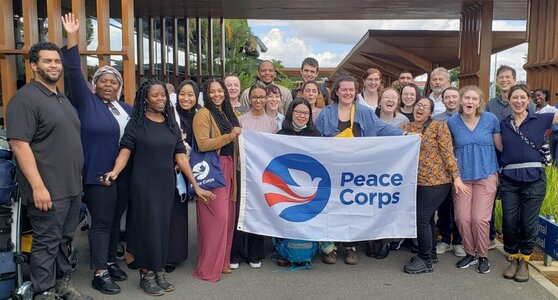
The Peace Corps grew from 900 volunteers serving 16 countries in 1961 to a peak of 15,556 volunteers in 52 countries in 1966. By 1989 budget cuts had reduced the number of volunteers to 5,100, but over the next two decades there were increases, such that by the Peace Corps’ 50th anniversary in 2011 there were more than 8,500 volunteers serving in 77 countries. In the 1990s the organization’s global reach was extended to include eastern European countries such as Hungary and Poland and republics of the former Soviet Union. Among other countries, China was added in 1993, South Africa in 1997, and Mexico in 2003. By 2018, 141 countries had hosted more than 235,000 Peace Corps volunteers.
Overseas volunteer services akin to the Peace Corps are maintained by other countries, while similar humanitarian work is sponsored by nongovernmental organizations such as Doctors Without Borders.
1961 Peace Corps, U.S. government agency of volunteers, established by executive order by Pres. John F. Kennedy on March 1, 1961, and authorized by the U.S. Congress through the Peace Corps Act of September 22, 1961. (From 1971 to 1981 it was a subagency of an independent agency called ACTION.) The first director of the Peace Corps was Kennedy’s brother-in-law R. Sargent Shriver.
The purpose of the Peace Corps is to assist other countries in their development efforts by providing skilled workers in the fields of education, agriculture, health (there has been a particular emphasis on combating HIV/AIDS), trade, technology, environmental protection, women’s economic empowerment, and community development. Peace Corps volunteers are assigned to specific projects on the basis of their skills, education, and experience. Once abroad, the volunteer is expected to function for two years as a good neighbor in the host country, to speak its language, and to live on a level comparable to that of the volunteer’s counterparts there.

The Peace Corps grew from 900 volunteers serving 16 countries in 1961 to a peak of 15,556 volunteers in 52 countries in 1966. By 1989 budget cuts had reduced the number of volunteers to 5,100, but over the next two decades there were increases, such that by the Peace Corps’ 50th anniversary in 2011 there were more than 8,500 volunteers serving in 77 countries. In the 1990s the organization’s global reach was extended to include eastern European countries such as Hungary and Poland and republics of the former Soviet Union. Among other countries, China was added in 1993, South Africa in 1997, and Mexico in 2003. By 2018, 141 countries had hosted more than 235,000 Peace Corps volunteers.
Overseas volunteer services akin to the Peace Corps are maintained by other countries, while similar humanitarian work is sponsored by nongovernmental organizations such as Doctors Without Borders.
heelinhell
Iconic Member
- Messages
- 1,838
No doubt he was a great coach, but he was a far greater man.
donbosco
Inconceivable Member
- Messages
- 3,368
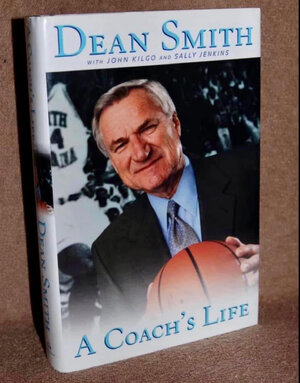
For @heelinhell
Chapter 11 in ‘A Coach’s Life’ is titled “I May Be Wrong, But!” It is my favorite in a book that is never out of reach. It is Coach Smith’s “This is what I believe” essay. In it Coach Smith writes that the game of basketball gives no advantage for wealth, nor race, nor religion, nor nationality and is “about as fair as humans can make something.”
In his assisted autobiography (John Kilgo and Sally Jenkins), ‘A Coach’s Life,’ Coach Smith thinks out loud about theology, one of his favorite topics. As a man of faith he expressed his reluctance to see God’s favor in a victory — “I may be wrong, but the idea that God cheers for one team to win over another is not my idea of God.” You may not like it, or perhaps you will love to hear it, but Coach Smith was firmly and thoughtfully Left-of-Center. And that Worldview was rooted in Christian Theology and The Bible.
He stood in opposition to White Supremacy, Nuclear Proliferation, and the Death Penalty. He saw right through the Moral Majority. He protested the Vietnam War. Coach Smith spoke for ‘Gay Rights’ and Civil Rights and the dismantling of segregation - all in a state that sent Jesse Helms to the Senate five times and has, disgracefully, more recently been carried in presidential elections three times by trump.
Many of us loved him for his coaching style long before we knew these things about him. But that style exemplified the baseline philosophy — share the ball, work hard to make your teammates’ opportunities better, and selfless sacrifice — that all of his teams displayed on the court. Maybe even for some of us it was Coach Smith’s example that helped to bring the light into our own lives. Like another UNC thinker, Frank Porter Graham, Coach Smith generated great heat in the lives of a great many people. Understandably, some did not like him, but if you did not respect him then you were/are a pitiable case.
Fred Hobson, born and raised in Yadkinville, NC, and who played Junior Varsity basketball at Carolina and later served as an English Professor at his Alma Mater, said, “To be quite frank, many of the people who idolized him in the state did not know his politics and would not have agreed with them if they had. So what everyone saw in him was not his politics. It was simply his leadership — that calm in the face of crisis.”
Continuing with the frankness, I’m personally very glad that I came to know the full measure of Coach Smith - because he showed us a path forward through darkness and did so with tact and by example. In the meantime, Coach Smith brought that same thoughtfulness to the game itself and to the relationship that he forged with each of his players over his 36 years on the sidelines. Yes, he thrilled us and taught us never to give up and that the only way was the right way, the human way, the kind and considerate way, but he also won the game far, far more than he lost.
He worked to turn the Front Porch of The University of North Carolina into a welcoming entryway for all people. Quite literally because of him the world had a focus other than Helms or KKK violence or Bathroom Bills when they looked to North Carolina and had to know that we all weren’t — clearly we couldn’t be — like that. He demonstrated that regression was contested in The Tar Heel State. If you don’t see this or are skeptical, read up - start with ‘A Coach’s Life’ then move on to the testimonials of his players, fellow coaches, folks that he worked and prayed with, and even most of all - the people that he bested. Happy Birthday Coach (1931-2015). Never, ever forgotten.
Share:

